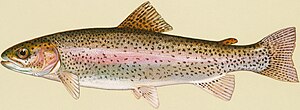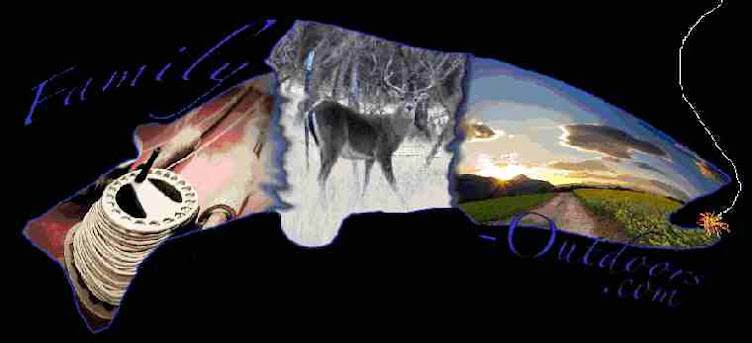 |
PRATT – The Kansas state record rainbow trout weighed 15.43 pounds. That’s not a typo; the official state record really weighed more than 15 pounds. Nicole Wilson caught it last March while fishing at Lake Shawnee in Topeka.
Kansas trout fishing is a wintertime activity. With one exception, the cold-water fish won’t survive a Kansas summer, but they do fine when stocked from November-April. There is a strip-mined lake on the Mined Land Wildlife Area in Cherokee County where cool spring flows allow trout to survive year-round. All other Kansas trout waters are stocked periodically throughout the trout season, Nov. 1-April 15, 2013.
Trout fishing is a great way to get out of the house on a warm winter day and enjoy some fishing. If you’re 16 or older, you’ll need a Trout Permit, which is $12.50 and valid through the calendar year. All resident anglers 16-75 (anglers 65-74 need a fishing license beginning Jan. 1, 2013) will also need a fishing license. Anglers 15 and younger may fish for trout without a trout stamp, but they may only keep two trout per day. An angler with a Trout Permit may keep five trout per day, unless a more restrictive creel limit is posted.
More than 30 waters are stocked with trout, and they are divided into two categories, listed in the Kansas Fishing Regulations Summary. All anglers 16 and older fishing on Type 1 Trout Waters must have a Trout Permit. On Type 2 waters, only anglers fishing for or possessing trout must have a Trout Permit.
Revenues from the sale of Trout Permits allow the Kansas Department of Wildlife, Parks and Tourism to purchase trout from contracting hatcheries for stocking. Contracts require catchable-sized trout along with a percentage of larger fish, so there is always the chance to catch a lunker. Most trout stocked are rainbows, but there are some brown trout stocked in the Kanopolis Seep Stream and Mined Land Unit No. 30.
Anglers use a variety of techniques to catch Kansas trout. Many still-fish commercial baits such as Berkley PowerBait, usually on or near the bottom. Others prefer to cast small spinners, spoons, or jigs on light tackle. And others choose to use fly tackle. Winter water is clear, so light line and ultra-light tackle is recommended. Even though these fish have been raised in hatcheries, they can be as finicky as their wild counterparts. Keep switching lures, flies and presentation until you find the combination that works. No matter how you catch them, winter trout are great fun and tasty when slow grilled or smoked fresh.
For more information on Kansas trout fishing, consult the 2012 Kansas Fishing Regulations Summary, available wherever licenses are sold and online at www.ksoutdoors.com. A complete list of stocking schedules can be found online at: http://kdwpt.state.ks.us/news/

